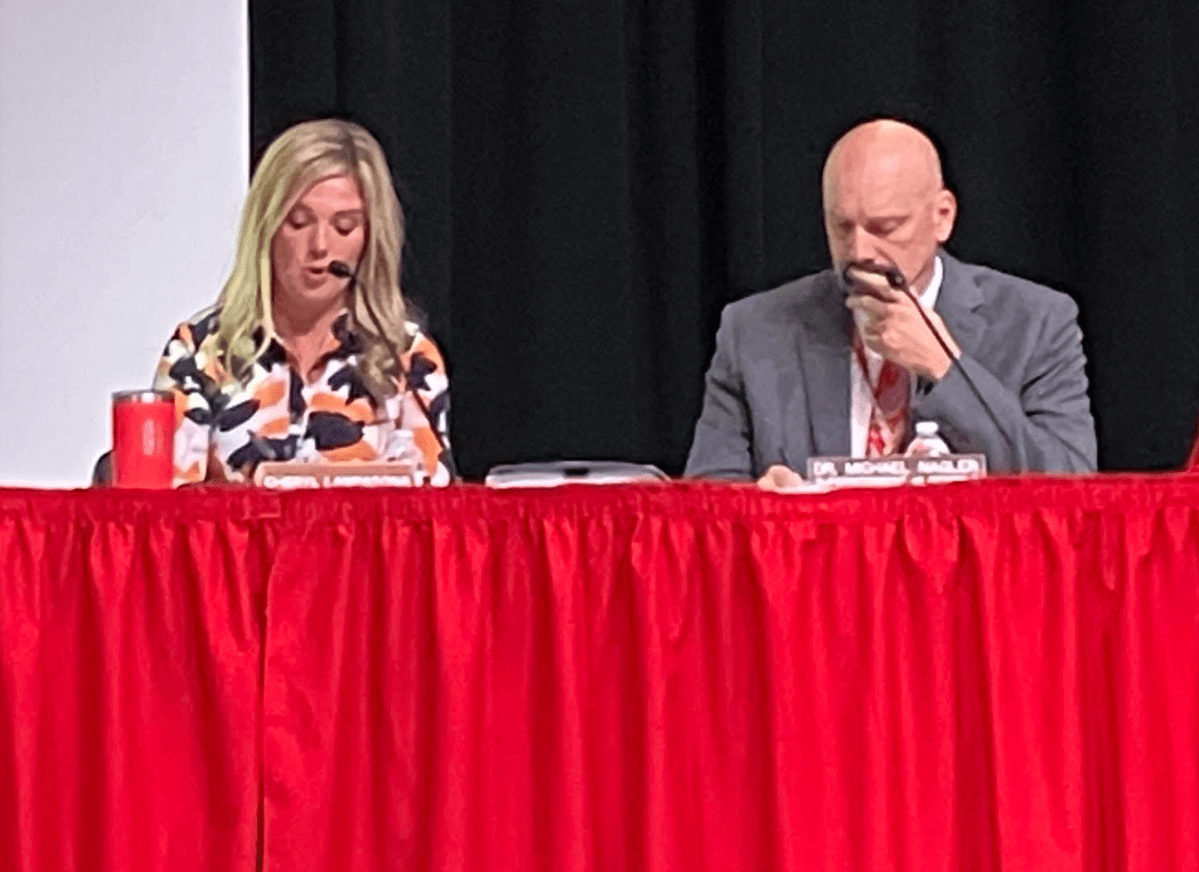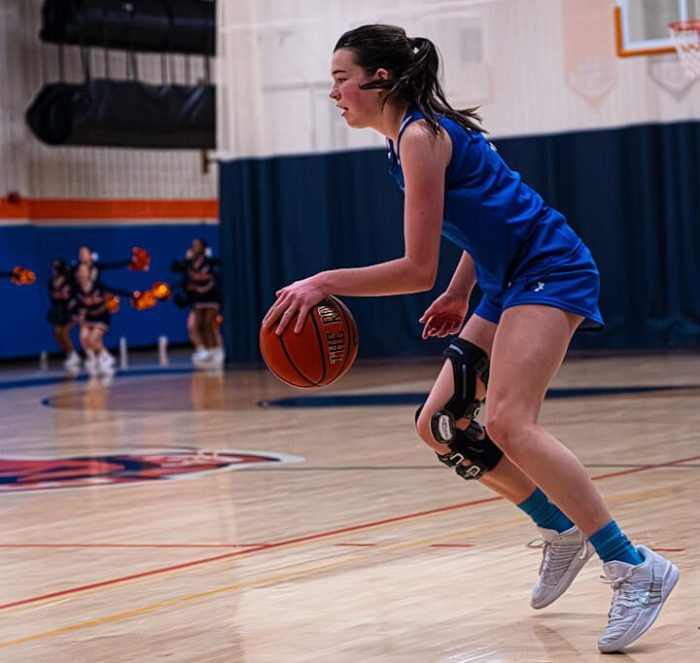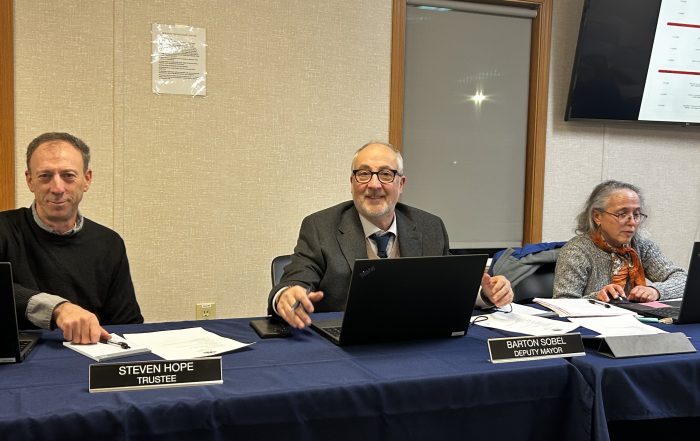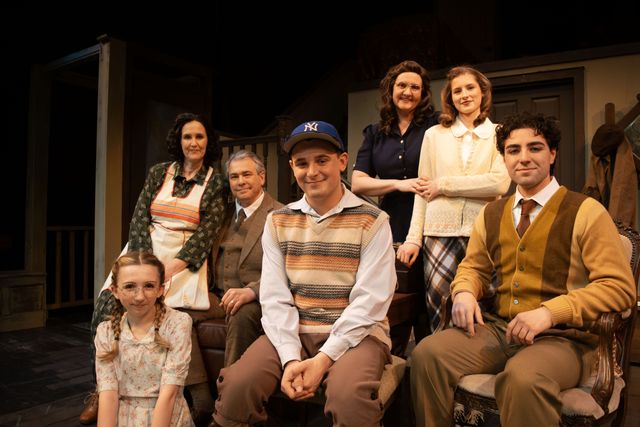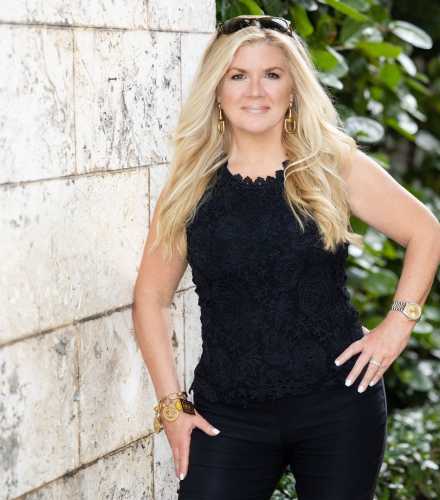The controversial video-based learning program developed by Mineola Superintendent Michael Nagler and his son used in his district’s eighth-grade classrooms has been terminated, according to a Friday afternoon email to parents from Nagler.
The termination comes at the direction of the Mineola Board of Education, who, according to the email, told Nagler to “immediately” terminate all aspects of the program, called “Build Your Own Grade,” after a petition against it garnered over 600 signatures and parents expressed outrage and called for Nagler’s suspension and board member resignation at Thursday night’s school board meeting.
The board also voted to hire outside legal counsel to “investigate” the program, data privacy concerns and potential conflicts of interest between Nagler, his company and the district during Thursday’s meeting.
The BYOG program, developed by the Naglers’ company, Quave, asked students to learn almost entirely on iPads through videos and by completing online tasks in response to those videos in their English, math, science and social studies classes.
According to parents and students, the program limited teacher instruction to a minimum, even when students have questions, which they said made it difficult for effective learning to take place.
“You will hear directly from your child’s teacher regarding the grading policy for each course your child is enrolled in and any other relevant information regarding the work requirements for the case,” Nagler’s Friday email read. It was unclear exactly when or how traditional classroom instruction would resume.
During Thursday’s meeting, Nagler presented the research that went into on the BYOG program, said his intent had been to better support students and apologized for the “failed” rollout.
After Nagler spoke, parents alleged the district had violated child data privacy laws, state education laws and the district’s code of ethics by using software developed by the superintendent’s family for free, without a contract, during the board meeting.
Greg Couture, a data security professional and one of roughly 150 Mineola parents at Thursday’s meeting, said he filed formal complaints with the Federal Trade Commission and state Attorney General because he found the BYOG platform to lack data security and violate privacy protection laws in a “dangerous” way after looking at the software on his eighth grader’s device.
“He deployed something with no safeguards, no cybersecurity review, no actual care in the world about protecting the data, and he stored it on a server he and his son own through a company they created in July,” Couture said. “This is such malfeasance. It’s such a conflict of interest.”
Couture said he believed Nagler created his own Google Cloud server to store the data.
Based on what he found, Couture said that the data includes student names, school emails, IP addresses, location when logging into the app and submitting assignments and grades. He believes the software and the cloud would be “incredibly easy” for someone to hack into, as he figured out how to do it “within five minutes.”
“In one sense, I’m making a mountain out of a mole hill, because nobody’s looking for 200 Mineola kids, so you don’t have to worry about any of this,” Couture said. “But, in a dark corner of this country, there are crime organizations that would love to get their hands on, let’s say, 100 young ladies. People disappear, things happen.”
“They took data that gives geolocation of our homes and school and the time the children get out of school and get home and start their homework in this database that is not at the Mineola School District’s control,” he continued. “It’s telling you where we live and what kid lives where with a distinct beacon of time…The real thing here is if that database has been compromised, parents could be held with ransomware…It doesn’t take you long to find an address, look up parents’ first and last names, find out where they work…The little bit of work you can do from this data is frightening.”
Couture said he believed the code was created with AI and that it was in violation of the Children’s Online Privacy Protection Act. Couture and the roughly dozen other parents who spoke at Thursday’s meeting also took issue with the conflict of interest they believed the program created.
Parents said they believed it violated the district’s code of ethics because Nagler had asked teachers to help form his personal company’s private product, which could potentially provide him with a financial benefit. They claimed he had “vested personal interest” in the company, making it impossible for him to be impartial when making decisions about it.
Nagler and all members of the school board did not return requests for additional comment from Schneps Media LI after the meeting. This article will be updated if they do.
Earlier this week, the district “suspended” the Build Your Own Grade learning management system and transferred the program’s videos onto Canvas, a widely-used student learning platform that complies with data privacy laws. Quave’s website was taken down soon after.
Couture said that he believed, unless Nagler deletes all the data stored in Quave’s cloud, the same vulnerability concerns remain. It is unclear whether Nagler has or will delete the data.
Eighth graders, who told Schneps Media LI on Thursday evening that they “didn’t like” the video-based learning program, said everything about it remained the same after the BYOG system’s suspension, except for the host site. They said the transfer resulted in them losing progress in their courses and having to redo certain assignments.
“Currently, I don’t want to go to school because it’s just on the iPad, and we’re sitting in silence all day, and it’s driving me crazy,” said Madeline F., a Mineola eighth grader. “I think that we should have a teacher in front teaching us, because it’s more interactive and it makes learning more fun. Then, you want to go to school.”
She said her teachers had expressed their dislike for the program but felt their “hands were tied,” with some saying they weren’t allowed to answer her questions.
Madeline and other students said the BYOG program was “stressful, chaotic and confusing,” had frequent glitches and prevented them from accomplishing productive learning because they were not engaged with videos that felt too long, were anxious about being able to complete everything by deadlines and couldn’t receive help.
“Now we’re learning about the Civil War, and I never learned about that, so it’s really up to me to learn about that,” another student said. “So, if I don’t understand something, that’s really up to me to figure it out and to do it by myself.”
When asked if she felt like she could, she replied, “I don’t know,” with a sigh.
“I feel like I was at the beginning of the year, because I had the time,” she said. “But now, sports are starting and everything’s starting up, and I’m slowly losing time to do all of this stuff, and I am never going to be able to find the time, and I don’t want to have to give up my lunch period to do this work, but I’m going to keep my grades up.”
She said she felt she learned best when teachers gave direct instruction to the class.
Another eighth-grader expressed concern over the stress they’d experience resuming “normal” instruction if the program was terminated.
“I want it to end, especially the grading, because the grading is a complete mess, and it really makes no sense,” she said. “But, I feel like it’ll be very confusing for all of us. We’ll have to restart the whole year, and we’re losing almost two months of learning time. It’ll be really chaotic, all smushed together, and I feel like I won’t learn anything.”
“I really do want it to end, but I feel like it’ll just bring a lot of confusion and even more stress,” the student continued. “But, with it gone, there’ll be no stress for the rest of the year.”
It is unclear exactly how the district will transition away from the BYOG program.




